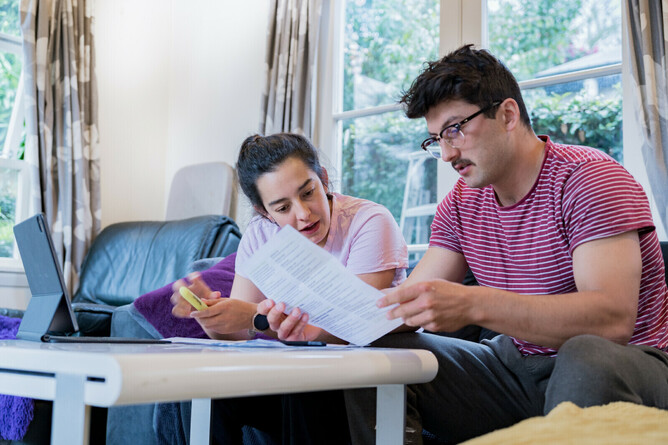Many of Moneyworks clients are part of a couple and we have a surprisingly low rate of relationship dissolution amongst our clients – or as it could be referred to ‘wealth division’. We have talked about this often, and wonder if it is a chicken and egg situation.
Does the fact that our clients openly discuss their financial situation on an annual (or more regular basis) lead to a happy relationship, or is it because there is a happy relationship that means that they are open to discussing their financial situation openly with each other?
We don’t know the answer, but a recent research project in the US has indicated that if money is pooled or shared in a relationship, couples are more likely to stay together.
The study that was titled ‘Pooling finances and relationship satisfaction’ found that joining your money together can increase the longevity of your relationship.
Another survey said that about 43% of couples have joint assets, with baby boomers most like (at 49%), Gen Xers (48%) and just 31% of millennials. Lower income couples tended to see greater benefits of pooling their money.
Whether you pool your money can depend on your culture, and when money is pooled, it is generally referred to as ‘our money’ as compared to ‘my money’.
The research found that couples with pooled financial accounts tended to exhibit a better connection and their interactions were more positive, stable and safe, and as well as talking about ‘our money’, they tended to use more words like ‘agree’, ‘connect’, ‘friend’, ‘kindness’, ‘listen’ and ‘peace’. Couples who pool their money are more likely to ‘feel like they are on the same team’.
Some of the reasons for not pooling money include:
1. Potential conflict if have to ask for money – prefer to have ‘your own money’
2. Not having full trust in the other person
3. Traditional approach from parents – the main income earner keeps the money and provides ‘house-keeping money’.
Research also indicated that about 43% of adults have confessed to committing some form of ‘financial deception’ (more men than women were likely to admit this).
Recommendation
We suggest that sharing your money can be done in stages. Start off with a joint account for living expenses, then housing costs. You may then move to pooling all of your money, but having a separate ‘pocket money’ or ‘mad money’ account, where you aren’t at all accountable for that amount of money to anyone other than yourself.
As mortgages and children arrive, it can become more difficult to have separate money, as time is taken off for child care.
Find out more here: https://www.cnbc.com/2022/03/29/couples-who-pool-their-money-are-more-likely-to-stay-together.html


